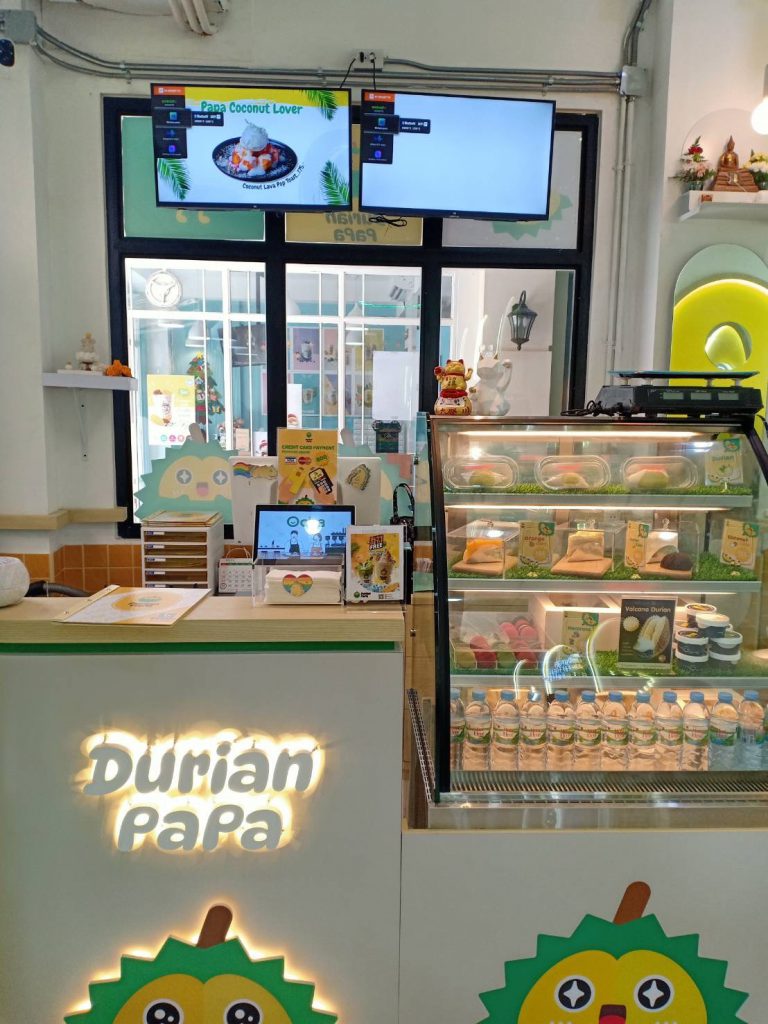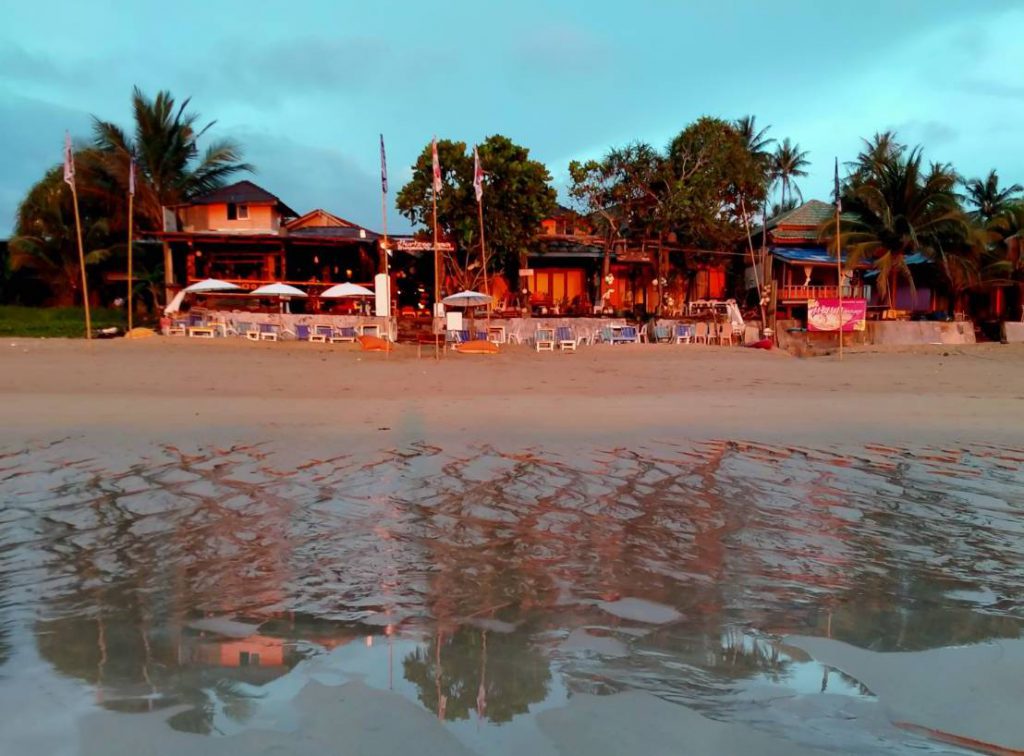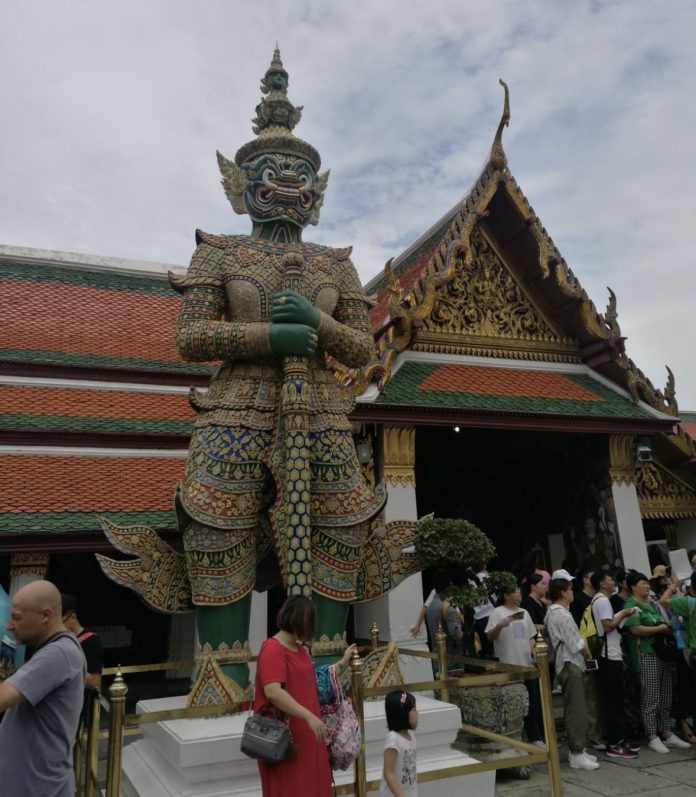The number of Chinese tourists remains low despite visa-free policy.
By Nutcha Hunsanimitkul
Restaurant owner Thanaporn Tadatonggul is struggling to achieve his business goal despite the relaxation of visa policies for Chinese visitors.
The Thai fusion restaurant, located near the popular tourist spot Wat Phra Kaew Temple in Bangkok, mainly serves travellers from China and Hong Kong. However, it has not benefited significantly from the policy change that encourages Chinese people to visit Thailand.
“Even on the Chinese National Day, we still didn’t see many Chinese visitors,” Tadatonggu says.
Launched on September 25, the visa-free policy allows Chinese visitors to enter Thailand without a visa application and stay up to 30 days. Aiming to boost the number of tourists to over 28 million, the policy will last until February 29 next year.
“The number of tourists has dropped by 30 to 40 per cent after the shooting incident in Siam Paragon. We can still feel the impact on our business now,” he adds.
On October 3, eight days after the visa policy change, a shooting rampage occurred in a busy shopping mall in Bangkok, resulting in the deaths of two tourists, including one Chinese visitor.
A 14-year-old boy was arrested, while another Myanmar national was reported dead from the incident.
To regain the confidence of Chinese visitors, Tadatonggul plans to invite Chinese influencers to visit his cafe and create a one-day vlog in Bangkok to be posted on popular Chinese social media platforms Xiao Hong Shu and Dian Ping.
“My restaurant will be featured in the video. I hope viewers will be inspired to visit,” says Tadatonggul, who started to run the restaurant after COVID-19 and hopes for a revival of the kingdom’s tourism.

He believes that the coming Lunar New Year holiday will be a golden time for the tourism industry in Thailand to recover incurred losses during the pandemic.
“I have prepared many special dishes and products for the New Year holiday. An all-you-can-eat promotion will also be launched to attract more customers,” he says.
Lika Prattapon, a resort manager on Lanta Island, is also struggling with her business despite the introduction of the visa-free policy for Chinese tourists.
“I don’t see any difference as we still have a limited number of Chinese travellers. We used to receive many group tours before the COVID-19 pandemic, ” she says.
Prattapon shares that only 25 percent of travellers have come back to the island compared to the pre-pandemic period.
“We have an in-house restaurant that used to serve many Chinese diners and make more than ฿100,000 bahts (US $2,778) per day. But it has gone down to less than ฿10,000 bahts (US $278) now. To cut costs, we had to revise our menu and remove dishes that require longer preparation time,” the manager says.

With fewer than 30 visitors per day, the resort manager hopes more Chinese tourists will visit Thailand during the Lunar New Year holiday.
“I have been more active on social media and reached out to our old customers, inviting them to return for the holiday,” she says.
Thailand earned over US$52 billion from tourism in 2019, contributing to 20% of the GDP (Gross Domestic Product), compared to just US$1.6 billion in 2020, according to the Thai Ministry of Tourism and Sports.
Tourism ministry figures also show that over 39 million visitors arrived in Thailand in 2019, with China, Malaysia, and Laos being the top three sources of travellers, but only a total of 30 million visited the kingdom in 2020.
Panita*, who works for Aeronautical Radio of Thailand, believes the tourism industry will take longer to recover. The officer observes an increase in domestic flights in China and a drop in outbound travel from the country.
“The Chinese are less eager to travel overseas after the pandemic, making it difficult for Thailand’s tourism industry to recover,” the officer, who provides air traffic control and aeronautical communication services for airline operations, says.
“The shooting incident in Bangkok does not affect overall flights as it was not an assassination attempt. But unrest across the world does make people think twice about travelling overseas,” she adds.
To attract more overseas passengers, the state company has introduced more red-eye flights, allowing visitors to take late-night trips and come to Thailand at a cheaper price.
“Flight lines were usually empty at night. We want to make the best use of available resources to engage more travellers,” Panita says.
Thai Prime Minister Srettha Thavisi assured Chinese tourists that the kingdom was safe for visitors when meeting Chinese President Xi Jinping on October 19 at the third Belt and Road Forum in Beijing.
According to the Thai Ministry of Foreign Affairs, China and Thailand signed a memorandum of cooperation in cross-country transportation development, as well as culture and tourist exchange during the conference.
*Name changed at request of the interviewee
Edited by Kossy Chen
Sub-edited by Amelie Yeung







































